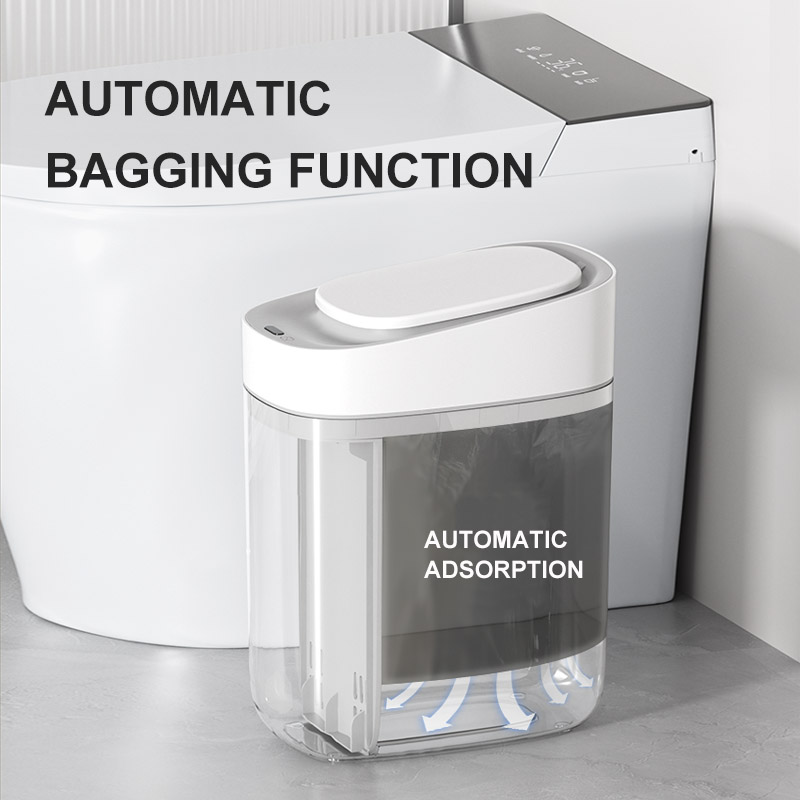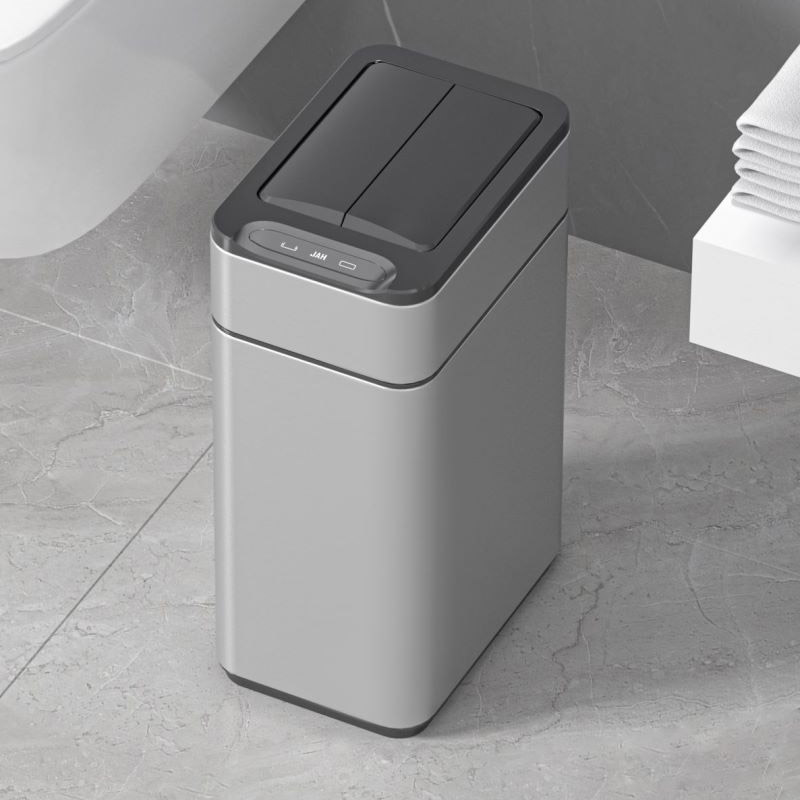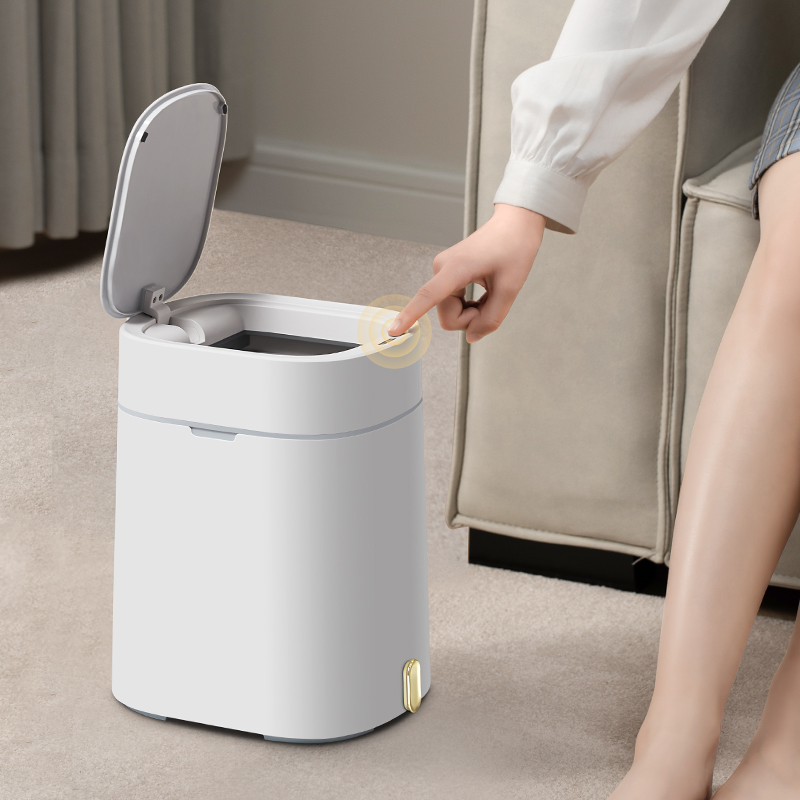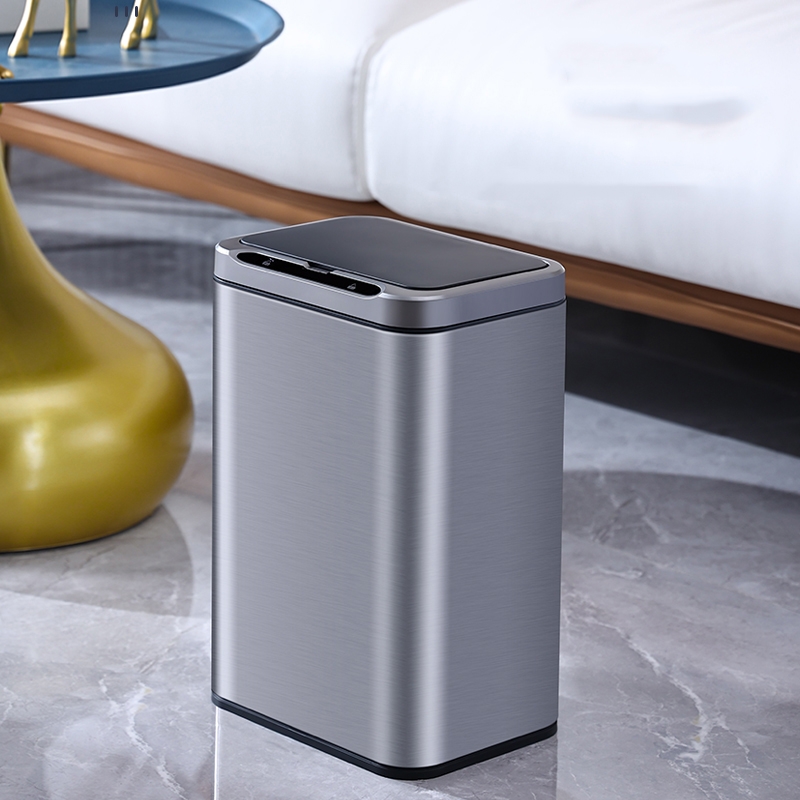What is a Smart Trash Can Technology?
08-25-2024
In today's era of smart technology, even our trash cans are getting an upgrade. One such innovation is the induction trash can, which brings convenience and efficiency to the process of waste disposal. Let's take a closer look at what induction trash cans are and how they are revolutionizing the way we manage our waste.
Induction trash cans are equipped with sensor technology that allows for hands-free operation. This means that users can open the lid of the trash can without physically touching it. The sensors are designed to detect motion or proximity, enabling the lid to open automatically when it senses someone approaching. This feature is particularly useful in scenarios where users may have their hands full and need to dispose of waste without having to touch the trash can.

There are several key features of induction trash cans that make them a valuable addition to any home or public space. One of the most prominent features is the ability to open the lid with a simple wave of the hand. This "hands-free" operation not only adds a level of convenience but also promotes hygiene by minimizing contact with potentially germ-laden surfaces.
Another notable feature is the knee-level sensor, which allows users to open the lid by simply waving their foot or knee in front of the sensor. This is especially useful in situations where users may not be able to use their hands, such as when cooking in the kitchen or working on a DIY project in the garage. The knee-level sensor effectively frees up the user's hands, making waste disposal a seamless and hygienic process.
In addition to these motion-sensing features, some induction trash cans also come with a "stay open" mode, which allows the lid to remain open for an extended period of time. This feature is particularly useful when users need to dispose of a large amount of waste or perform a thorough cleaning of the trash can. By keeping the lid open, users can focus on their task without having to worry about repeatedly triggering the sensor to keep the lid from closing.

The application of induction trash cans extends beyond individual homes and can be particularly beneficial in public spaces such as parks, shopping malls, and airports. By incorporating these Smart Trash Cans into public areas, authorities can promote cleanliness and hygiene while also reducing the spread of germs and bacteria. The hands-free operation of these trash cans minimizes physical contact, making them an ideal solution for high-traffic areas where maintaining cleanliness is essential.
From an environmental perspective, induction trash cans can also contribute to sustainable waste management practices. By making waste disposal more convenient and hygienic, these Smart Trash Cans encourage users to properly dispose of their waste, thus reducing littering and promoting responsible waste management. Additionally, some models of induction trash cans are equipped with compartments for recyclable materials, further supporting efforts to reduce waste and promote recycling.

In conclusion, induction trash cans represent a significant advancement in waste management technology. Their hands-free operation, motion-sensing capabilities, and contribution to hygiene make them an invaluable addition to both homes and public spaces. As we continue to embrace smart technology in various aspects of our lives, induction trash cans stand out as a practical and innovative solution for efficient and sustainable waste disposal.
















